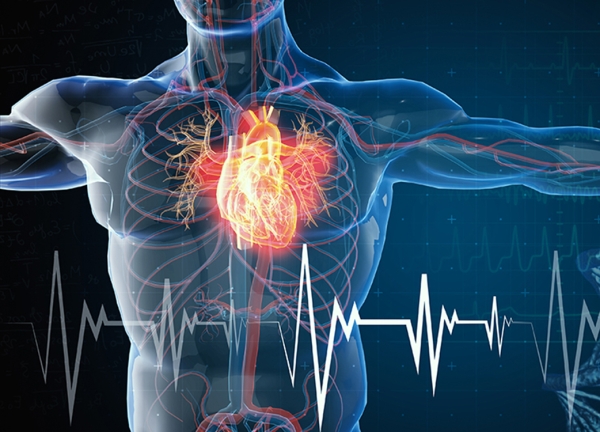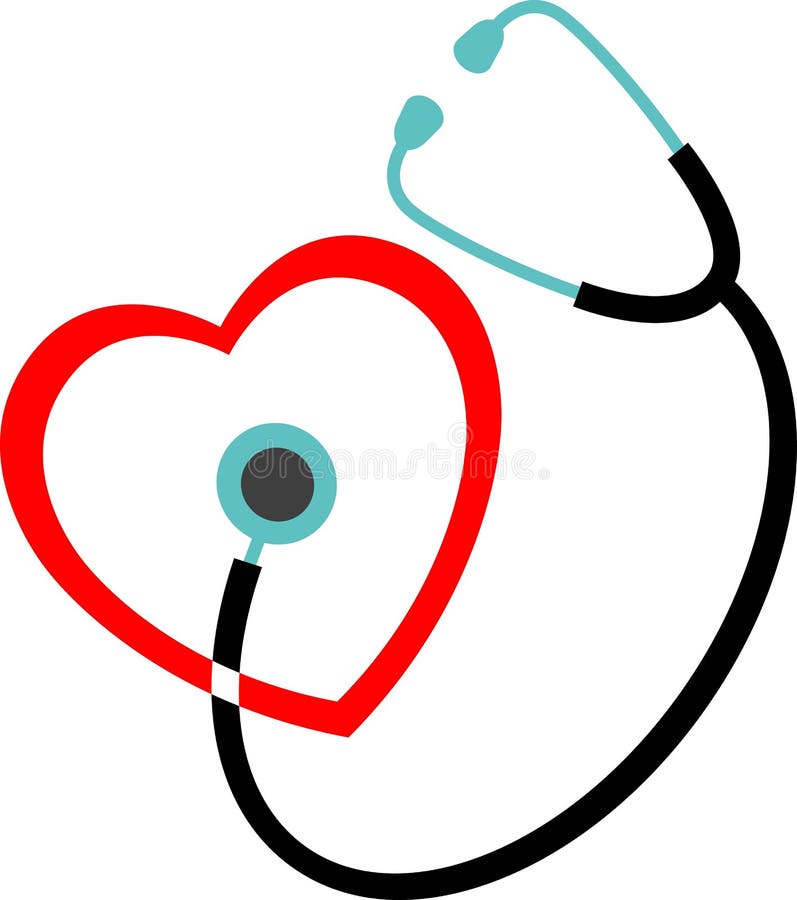Cardiology care FAQs: Answers to your top heart health questions
Cardiology care FAQs: Answers to your top heart health questions
Blog Article
Recognizing the Importance of Cardiology in Modern Medical Care Providers
Cardiology plays an important duty in contemporary medical care, particularly as cardiovascular disease remains to be the leading reason for death worldwide. Developments in diagnostics and treatment have actually transformed individual treatment, allowing earlier interventions and improved end results. Furthermore, the change towards preventive cardiology encourages individuals to manage their health proactively. As innovation remains to evolve, the integration of ingenious remedies might further redefine cardiology's impact on public health and wellness, motivating a better exam of arising patterns and their effects.
The Prevalence of Cardiovascular Disease and Its Influence On Public Health And Wellness
Heart condition continues to be the leading reason of death globally, its impact expands far past specific people to impact public wellness systems and economies. The high prevalence of heart problem places a significant strain on medical care resources, demanding raised financing for rehab, therapy, and prevention programs. Public health and wellness campaigns must attend to risk elements such as excessive weight, cigarette smoking, and inactive way of lives, which add greatly to the increasing occurrence of heart conditions.Moreover, the economic problem linked with heart condition is enormous, encompassing not only direct clinical prices but likewise indirect expenditures connected to lost productivity and premature death. Neighborhoods deal with obstacles in managing these costs, commonly bring about disparities in medical care access and results. As the populace ages and lifestyle-related threats continue to escalate, the urgency for efficient cardiology treatments comes to be extremely important. Dealing with heart illness is not just an issue of specific wellness yet likewise an important public health and wellness concern.
Advancements in Cardiac Diagnostics and Imaging Techniques
Recent advancements in heart diagnostics and imaging strategies have actually transformed the field of cardiology, boosting the capability to keep an eye on and discover heart problem. Techniques such as heart MRI, CT angiography, and echocardiography have actually come to be significantly advanced, providing detailed photos of cardiac structures and features. These modalities permit for the early recognition of conditions like coronary artery condition, heart failing, and valvular disorders.Moreover, developments in non-invasive diagnostics, such as wearable modern technology and remote surveillance gadgets, have encouraged clients and healthcare carriers. These tools promote real-time monitoring of heart rhythms and other necessary indications, bring about timely treatments. Furthermore, expert system is being integrated right into imaging analysis, enhancing accuracy and performance in medical diagnosis.
Developments in Therapy Options for Heart Issues
Recent improvements in cardiology have actually caused considerable developments in therapy options for heart disease. These consist of advanced medical strategies that enhance step-by-step results and arising medications that use brand-new avenues for therapy. As the area advances, these developments play an essential role in improving individual treatment and outcomes.
Advanced Surgical Techniques
Technologies in surgical methods have actually changed the landscape of cardiology, offering new expect individuals with heart disease. Minimally intrusive procedures, such as catheter-based interventions, have considerably lowered recuperation times and hospital remains. Techniques like robotic-assisted surgery improve precision, enabling doctors to browse intricate physiological frameworks with better precision. Furthermore, developments in imaging innovation assist in real-time visualization throughout procedures, boosting end results. Transcatheter aortic shutoff substitute (TAVR) exhibits an innovation in dealing with aortic stenosis, allowing valve substitute without open-heart surgical procedure. In addition, hybrid techniques that integrate surgical and catheter-based methods give customized options for numerous heart problems. These advanced surgical strategies not just enhance client safety but additionally broaden treatment alternatives, emphasizing the important role of technology in contemporary cardiology methods.
Arising Drugs and Therapies
As the landscape of cardiology continues to advance, emerging drugs and therapies play a critical duty in improving therapy options for heart disease. Innovations such as novel anticoagulants and progressed lipid-lowering representatives have changed the administration of heart diseases, considerably reducing person morbidity and mortality. In addition, the development of genetics therapies and regenerative medication offers appealing avenues for treating conditions previously considered irreparable. Scientific trials are continuously revealing the effectiveness of these therapies, pushing the limits of typical treatments. In addition, the integration of electronic wellness technologies promotes customized medication, permitting for tailored treatment strategies based upon genetic and way of life variables. Collectively, these developments highlight the dynamic nature of cardiology, enhancing individual end results and redefining criteria of treatment in modern healthcare.
The Role of Preventive Cardiology in Client Treatment
Preventative cardiology plays an essential role in client care by focusing on the identification of danger elements that add to heart problem. Via way of living alteration approaches and very early discovery methods, doctor can successfully decrease the incidence of cardiovascular events - Cardiology Jupiter. This proactive strategy not just boosts person outcomes however likewise promotes long-term wellness
Danger Aspect Recognition
While cardiovascular diseases continue to be a leading cause of morbidity and death worldwide, efficient risk factor recognition offers as a foundation of preventive cardiology. Recognizing threat variables such as high blood pressure, diabetes mellitus, household, and hyperlipidemia background is necessary for early treatment. Health care specialists make use of various evaluating methods to review these aspects, allowing for customized safety nets. Furthermore, comprehending an individual's way of life choices, such as smoking cigarettes and physical inactivity, further informs danger analyses. This complete evaluation allows medical professionals to establish personalized treatment plans targeted at mitigating threats. By prioritizing danger variable identification, health care systems can improve person outcomes and minimize the total concern of cardio conditions, ultimately adding to improved public wellness strategies and resource allowance.
Way Of Living Modification Techniques
A wide variety of researches highlights the vital function of lifestyle adjustment approaches in reducing heart disease danger. These strategies include nutritional adjustments, raised physical activity, smoking cessation, and weight management. By embracing a heart-healthy diet plan abundant in fruits, vegetables, whole grains, and lean proteins, individuals can lower cholesterol levels and high blood pressure. Regular physical activity enhances the heart and boosts total cardio health and wellness. Furthermore, stopping cigarette smoking considerably minimizes the threat of cardiovascular disease and boosts recuperation prices for those with status quo. Weight administration even more his comment is here adds to cardiovascular wellness by alleviating various other risk factors such as diabetes and high blood pressure. Applying these way of life alters not only promotes specific wellness however also works as a keystone of precautionary cardiology in patient care.
Very Early Detection Techniques
Way of living adjustments significantly contribute to minimizing heart disease dangers, but they are most efficient when combined with early detection techniques. Precautionary cardiology highlights the value of identifying possible heart concerns before they intensify right into severe conditions. Strategies such as high blood pressure surveillance, cholesterol testing, and advanced imaging technologies like echocardiograms play critical functions in evaluating cardio health. Biomarkers and hereditary testing likewise boost the precision of very early detection, permitting for tailored preventative methods. Regular heart danger evaluations encourage doctor to interfere proactively, potentially preventing heart assaults and strokes (Cardiology Jupiter). By incorporating these early detection approaches into routine care, clients can take advantage of prompt lifestyle treatments and targeted therapies, ultimately improving outcomes and boosting lifestyle
Integrating Modern Technology Into Cardiology Practices
As developments in technology remain to improve various fields, the combination of cutting-edge devices and systems right into cardiology practices has ended up being necessary for boosting client treatment and results. Telemedicine systems allow cardiologists to check patients remotely, boosting access to care while reducing the concern on health care facilities. Wearable gadgets, such as smartwatches, allow constant heart rate tracking, informing both patients and doctors to potential concerns in real-time. In addition, expert system (AI) is being used to evaluate large amounts of cardiac information, aiding in very early diagnosis and individualized therapy plans. Advanced imaging techniques, including 3D echocardiography, boost visualization of heart frameworks, causing a lot more accurate interventions. Electronic wellness documents (EHRs) streamline patient details management, ensuring that cardiologists have prompt accessibility to vital data. Together, these technical developments are transforming cardiology, advertising positive management and boosted health and wellness outcomes for people with cardiovascular problems.
The Relevance of Person Education And Learning and Engagement
Individual education and interaction play a pivotal duty in the administration of cardiovascular health and wellness. By equipping individuals with knowledge regarding their problems, treatment choices, and lifestyle adjustments, health care service providers equip people to take an active role in their treatment. This aggressive approach can cause boosted adherence to prescribed medicines, nutritional adjustments, and exercise regimens, eventually lowering the danger of complications.Engagement likewise cultivates a strong patient-provider relationship, motivating open interaction and trust fund. When patients feel informed and entailed, they are more probable to voice issues and ask concerns, which can cause far better professional outcomes. Additionally, educational sources, such as workshops or digital platforms, can improve understanding and promote self-management methods. Generally, focusing on individual education and learning and engagement is important for improving cardiovascular health, improving lifestyle, and decreasing healthcare costs connected with heart diseases.
Future Trends in Cardiology and Their Potential Influence

Frequently Asked Inquiries
What Way Of Living Modifications Can Decrease Heart Problem Threat?
The present question addresses way of life modifications that can significantly reduce heart condition danger. Cardiology care. Embracing a well balanced diet plan, engaging in normal physical task, keeping a healthy and balanced weight, managing stress, and staying clear of tobacco can especially enhance cardio health and wellness
How Can I Identify Very Early Signs of Heart Troubles?
Acknowledging very early indications of heart troubles includes surveillance signs such as upper body pain, lack of breath, fatigue, and uneven heartbeat. Prompt awareness of these signs can prompt required clinical assessment and treatment for better results.
What Are the Differences In Between Cardiologists and Cardiac Surgeons?
The differences in between cardiologists and heart cosmetic surgeons exist in their roles; cardiologists mostly diagnose and handle heart problems with non-invasive approaches, while cardiac specialists perform surgical treatments to deal with structural heart concerns. Each plays a crucial, unique duty.

Exactly how Typically Should I Get My Heart Health Checked?
The regularity of heart health and wellness checks varies based upon private risk factors. Usually, grownups ought to undertake view it examinations every one to 2 years, while those with present problems may call for more frequent analyses as recommended by healthcare specialists.
What Function Does Genes Play in Heart Illness Risk?
Genes significantly influences heart illness risk, with domestic his explanation patterns indicating acquired conditions. Details genes can predispose people to hypertension, cholesterol concerns, and other cardio issues, highlighting the importance of genetic testing in assessing heart wellness. Heart disease continues to be the leading cause of fatality globally, its effect expands far past individual clients to influence public health systems and economic situations. Public health efforts have to address danger variables such as obesity, smoking cigarettes, and sedentary way of lives, which add greatly to the increasing occurrence of heart conditions.Moreover, the financial burden associated with heart illness is tremendous, incorporating not only direct clinical prices yet also indirect expenses associated to shed performance and early death. Preventive cardiology plays a vital duty in person care by focusing on the recognition of danger aspects that contribute to heart illness. Man-made intelligence (AI) and equipment knowing are boosting diagnostics and client tracking, making it possible for early detection of heart illness. The distinctions in between cardiologists and heart specialists exist in their roles; cardiologists primarily diagnose and manage heart conditions through non-invasive methods, while heart doctors execute medical treatments to correct structural heart concerns.
Report this page